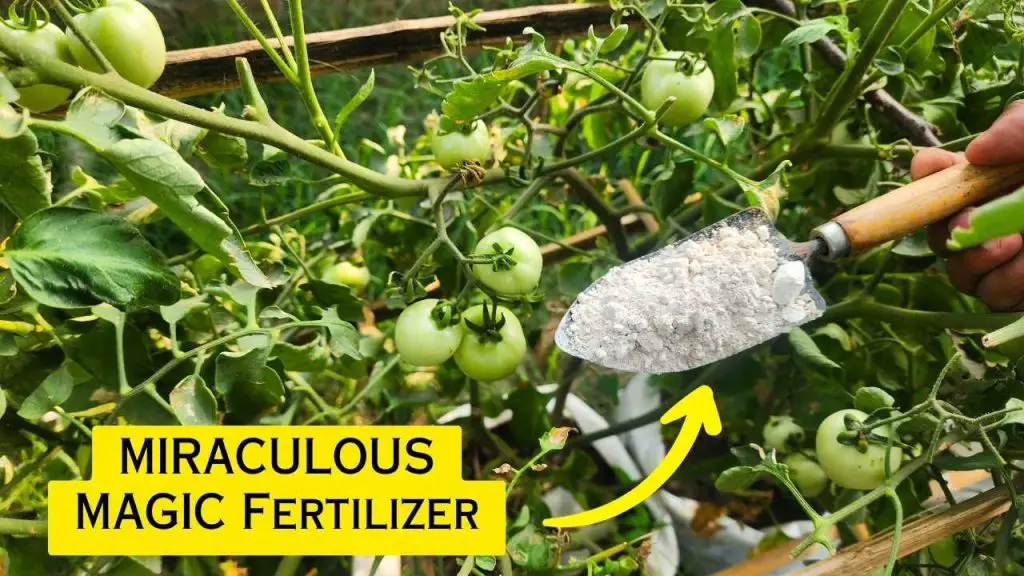In today’s article, we will discuss an organic magic fertiliser that is an excellent source of organic calcium for plants. It is effective as both a fertiliser and an amendment to the soil, as well as a pest repellent.

In this lesson, we will discuss the three incredible applications of this 100% magic fertiliser that can help plants and gardening. There’s a good reason why people refer to this white powder as MAGIC Fertiliser. To begin, let’s run through a quick list of the three very significant applications for this powder in gardening.
Before we get started, could you please make sure that you have subscribed to this channel as well as the bell notification?
The MIRACULOUS MAGIC Fertilizer is writing chalk.
Take note: there is no requirement for you to go out and purchase chalk for the purpose of this particular explanation. If you have extra chalk available at home, you can put these sticks of magic to use in your garden.
1. pH Adjustment:
The pH level of acidic soils can be brought up to a more desirable range with the addition of chalk, which is another name for calcium carbonate. Because they make it more difficult for essential nutrients to be absorbed by plants, acidic soils can be detrimental to plant growth.
When chalk is added to acidic soil, the alkaline nature of calcium carbonate helps neutralise the acidity of the soil, creating a pH range that is more conducive to the growth of plants.
2. An Increase in Calcium Content
Chalk is an excellent source of calcium, which is a nutrient that is necessary for the growth of plants. Calcium is necessary for many different processes that take place in plants, including the formation of cell walls, the activation of enzymes, and the intake of nutrients.
It is possible to supplement the soil’s calcium content by adding chalk, particularly in soils that are deficient in calcium. This enrichment helps strengthen the structure of the plant’s cells, which in turn improves the plant’s resistance to disease and supports the healthy development of fruit.
3. Improvements to the Soil Structure
Chalk has the ability to improve the soil structure by increasing the cation exchange capacity (CEC) of the soil. The capacity of the soil to hold onto nutrients and share them with the plants is referred to as the CEC.
Chalk’s high calcium content can flocculate clay particles, which lessens the clay’s tendency to stick together and makes drainage in the soil better. This method improves soil aeration, root penetration, and water infiltration, all of which contribute to the development of more robust plant life.
The following are some additional pointers to consider when making use of chalk in the garden:
- Instead of using chalk sticks, you should use chalk powder. Chalk that is available in powdered form is not only simpler to apply evenly, but it also does not leave behind any unsightly stains on the plants.
- Before using chalk, it is important to have the pH of your soil tested. You do not need to add chalk if the soil in your garden already has an alkaline pH.
- Take care not to use an excessive amount of chalk. A soil that contains an excessive amount of chalk may become overly alkaline, which may be detrimental to the health of certain plants.
There are 3 ways to use chalk in your garden:
- No1. make a powder of chalk and mix that powder in the water and give that liquid fertlizer to your plants.
- No.2 Sprinkle that powder directly on top of soil and mix it with the soil.
- No.3 Take a piece of chalk and bury it in the soil, the stick will slow release calcium in the soil whenever you give water to your plants.
Chalk, in general, is a material that is not only versatile but also safe, and it can be utilised in the garden in a number of different ways. Chalk is an option worth considering if you are looking for a natural method to improve the health of your plants or to discourage the presence of pests in your garden.
